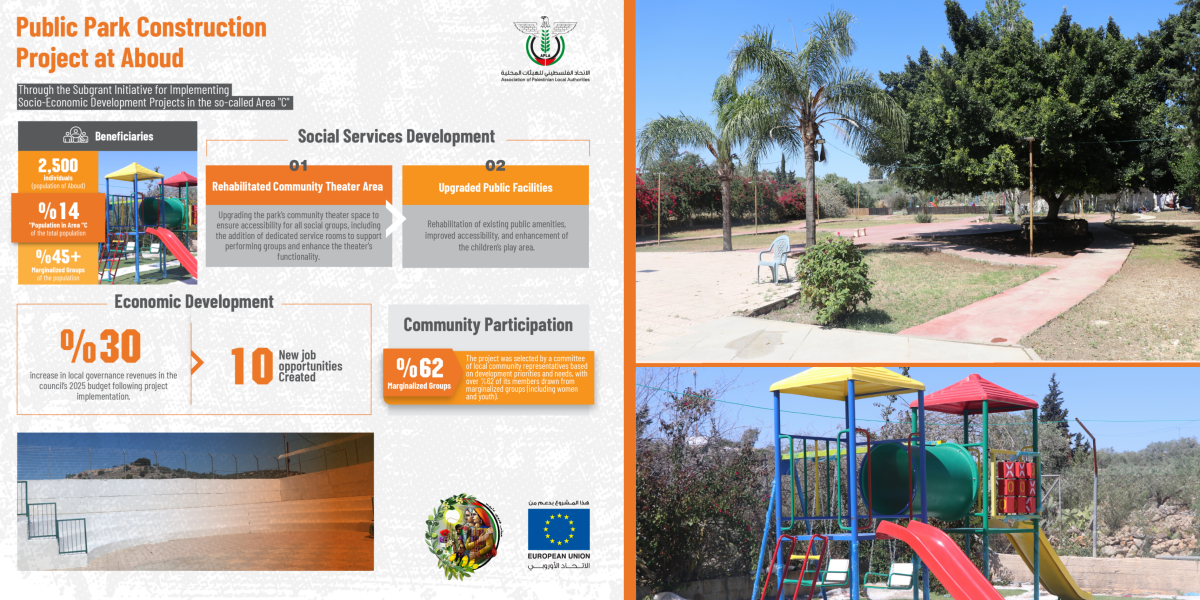Aboud | Children’s Park Rehabilitation
Aboud, west of Ramallah, carries a name steeped in meaning. Some say it was named for the abundance of temples that once stood here; others link it to the prophet Abadiah. Both interpretations speak of sanctity and deep roots in history. In its stone alleys stand nine ancient churches, the most prominent being the Church of the Dormition of the Virgin dating back to the 4th century, beside a mosque that shares its wall—where the call to prayer blends with the peal of church bells, as if one melody has guarded the village for two thousand years. On its outskirts flows Wadi al-Lemon, its springs offering a living testimony to a life that has never ceased.
Yet this history, wrapped in serenity, is burdened by a harsh present. The village is encircled by settlements and bypass roads; its daily life controlled by a military watchtower that shuts the main gate for days on end, turning 2,500 lives into prisoners of their own home. A third of its 15,000 dunums has been seized for settlements, while a settler highway cuts through its heart like a deep wound, tying the coast to Jerusalem and leaving its people suspended between isolation and dispossession.
And Aboud, whose present is weighed down by siege, has opened within itself another gate: the gate of the stage and the garden, where public space becomes a sanctuary for memory and a promise for the future—told on the boards of theater and beneath the shade of trees. This is embodied in the “Rehabilitation of the Children’s Garden and the Community Theater” project, a declaration that public space is not a luxury but a cornerstone of survival.
The revived theater now stands as a platform for culture, celebrations, and community events, while the surrounding garden has become a shared refuge: children running freely in safe play areas, women and youth gathering in circles of exchange, and the elderly walking with dignity along paths designed for them. In this scene, the project rises beyond construction or renovation; it restores to people their sense of agency in shaping daily life, transforming land from a besieged fragment into a space that embraces social ties and collective memory.
Listen closely to Aboud today, and you will hear a tapestry of sounds: the trickle of Wadi al-Lemon, the chants of ancient churches, children’s laughter in the garden, and the applause of an audience awaiting the stage. Together, they weave one story: that the village, once meant for isolation, has reopened its doors to life through the gateway of art and public space.

This project is part of the Sub-Grant Program, which is implemented by the Association of Palestinian Local Authorities (APLA) in Area C. The initiatives under this program are not merely about infrastructure improvement, but serve as practical tools to keep communities rooted in their land, expand spaces of life in the face of closure and confiscation, and turn development into a daily act of resilience that safeguards rights, memory, and existence.
funded by: the European Union and the Swiss Agency for Development and Cooperation (SDC)

 Key Indicators
Key Indicators
 Cultural Heritage
Cultural Heritage
 Public Parks
Public Parks
 Renewable Energy
Renewable Energy
